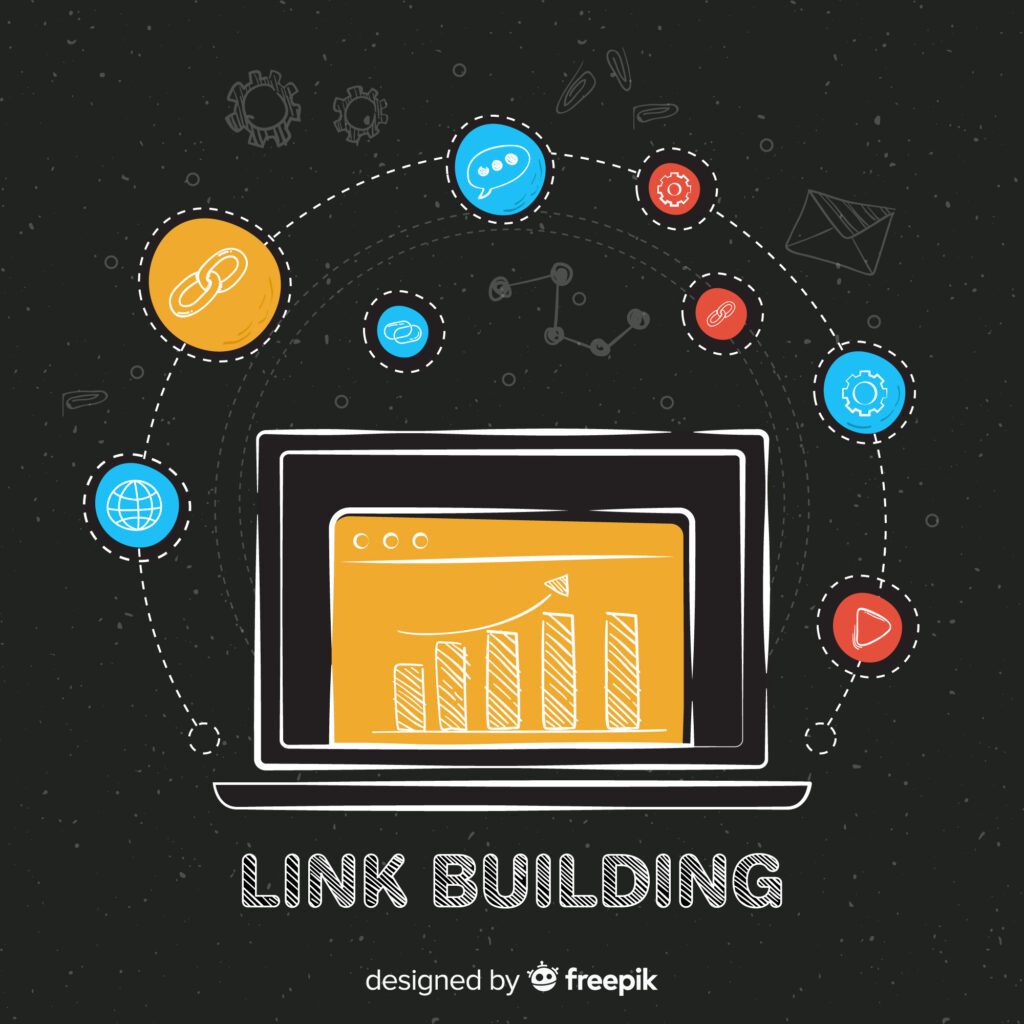
Backlinks have always been a hot topic in the world of SEO. I’ve seen so many strategies rise and fall, but backlinks just keep coming back as a key part of ranking on Google. If you’ve ever wondered why backlinks matter, how much they help us, or if they’re still a thing for SEO in 2025-2026, you’re in the right place. I’ll break down why backlinks are important for online marketing and how they can move the needle on your website’s visibility.
How Backlinks Power Up SEO
Backlinks are basically links from other websites that point to your website. I like to think of them as “votes of confidence” for your site. Search engines see these links as a sign that your content is worth checking out. So, when a reputable site links to you, it tells Google, “Hey, this page is actually useful.”
Historically, backlinks have played a big role in how search engines decide which pages show up first in search results. Way back in the day, Google’s PageRank algorithm was built around the idea of counting these links. While SEO has gotten a lot more complex since then, backlinks still have a big impact on rankings. According to Moz and lots of other SEO sources, pages with solid backlink profiles usually show up higher in search results.
Here’s the main reason backlinks help search engines track down pages, judge their authority, and determine if they’re credible. A good backlink from a trustworthy website can give your site a nice boost in organic traffic and trustworthiness in Google’s eyes.
Are Backlinks Still Important? (And Will They Matter in 2026?)
Things change fast in digital marketing, but backlinks have held their ground. If you’ve read SEO news lately, you’ll see plenty of debates about newer ranking factors like user experience signals, core web vitals, and AI-generated content. Still, Google’s own spokespeople say backlinks are one of the top ranking factors, even with all the updates and changes.
Looking ahead to 2025-2026, it’s pretty clear backlinks will continue to matter. Google’s recent algorithm updates still give weight to the quality and relevance of incoming links. The trend, though, is moving toward quality over quantity. So, spamming a bunch of low level directories or buying sketchy links isn’t going to work like it used to. Earning links from relevant, high quality websites in your industry will always be valuable. As we head into 2025-2026, I don’t see backlinks leaving the SEO conversation anytime soon.
Industry leaders regularly point out that while other factors might get trendy, the foundational aspect of backlinks remains steady. It’s common for budding webmasters to want to skip link building due to how challenging it seems, but those who commit to the process usually stumble upon the long-term value. Personally, nearly every up-and-coming website I work with gets a major boost in rankings once they secure a few quality links—even if every other technical part of their SEO is perfect.
What Is the Main Purpose of Backlinks in SEO?
The core purpose of backlinks is to signal to search engines that your website or page is trustworthy, credible, and worth ranking higher. When lots of quality sites vouch for your content, search engines view you as a legit resource in your field.
- Referral Traffic: Backlinks don’t just help with rankings; they can send real people to your website. If a popular site in your industry mentions you, you’ll likely see a bump in traffic from folks who click through.
- Indexing: Search engines crawl through links to track down new content. Backlinks help search engines track down your pages faster and keep tabs on your latest updates.
- Brand Building: Getting featured on trusted sites in your space can give your brand’s reputation and awareness a boost. It’s great for SEO and for building relationships across your industry.
So, backlinks aren’t just about rankings; they’re practical tools for growing your site’s reach and building your brand’s reputation online.
Can a Page Rank High With No Backlinks?
A page can rank high without containing backlinks. But it is pretty rare. Most pages that show up on the first page of Google have at least a few backlinks. There are always exceptions, like super niche topics or new pages on big established sites, but the reality is that backlinks make ranking much easier. Even Moz’s ranking factor studies show a direct link between having backlinks and being near the top of Google’s results.
Without backlinks, you might rank for your brand name or some very specific, low competition keywords. But to climb higher for competitive search terms, backlinks really help. I’ve tried ranking pages with zero backlinks in the past, and unless the keyword was really under the radar, it was tough to get real traction.
For instance, some local service pages might squeeze onto the first page without links, but broader topics or shopping keywords almost always demand at least a few quality links to reach the top. This just shows how competitive search landscapes amplify the need for targeted link building.
Is It Possible to Succeed in SEO Without Backlinks?
Technically, you can do some SEO basics without focusing on backlinks. Onpage optimization, like making sure your content is helpful, your site loads quickly, and you have a solid internal linking structure, does bring results, especially for less competitive keywords. But if you want to rank for anything competitive, backlinks make it way easier.
I’ve seen websites with brilliant content get stuck on page 2 or 3 for months simply because they had no decent backlinks. Once those pages got a few strong, relevant links, rankings usually improved pretty quickly. So while it’s not strictly impossible to do SEO without backlinks, you’ll probably be missing out on a big opportunity for growth.
Also, the leads and exposure you gain from external traffic brought by backlinks can nurture brand awareness. A single link from a trusted industry publication can put your brand in front of new faces and send you referral traffic that sticks around for years.
Types of Backlinks (And Which Ones Matter Most)
Not all backlinks are created equal. Some links can boost your site, while others might do nothing (or even hurt you if they’re from spammy places). It helps to know the differences:
- Editorial Backlinks: These are links you get naturally, like when someone quotes your blog post in their article. Search engines tend to trust these the most.
- Guest Post Links: Writing an article for an industry site and linking back to your own content? That’s a smart and legit way to get noticed; just make sure your content offers real value.
- Directory Links: Listing your business in reputable directories can help, but avoid spammy ones. Stick with well known, relevant directories in your field.
- No Follow vs. Do Follow: “Do follow” links pass on “link juice” (ranking power), while “no follow” tells search engines not to count them for rankings. A healthy mix looks most natural.
Quality beats quantity every time. One good link from a major, trusted outlet is worth way more than dozens from offtopic or unknown sites. As Google’s algorithm grows more sophisticated, context and authority matter more than ever. That means a link from a niche industry blog typically trumps a generic directory or unrelated website.
Common Backlink Challenges and How to Tackle Them
Building backlinks comes with its own set of problems. Sometimes, link building feels like a slow climb, especially for new websites. Here are some common challenges I’ve run into and what helps:
- Getting Noticed: Make sure your content is genuinely useful, up to date, and shareable. Doing outreach and making real connections in your space can open doors.
- Spammy Links: Disavow tools in Google Search Console let you distance your site from bad links. Keep an eye on your backlink profile to catch issues early.
- Link Quality: Focus on getting links from websites that are relevant to your topic and have good authority. Even smaller industry blogs often carry weight.
- Algorithm Updates: Search engines are always changing the formula, but earning links the right way (not through shortcuts) helps protect you against sudden drops.
Also, patience is key. Many webmasters give up too soon on link outreach. It’s normal to send a lot of emails before you actually get a link, so persistence and building genuine relationships in your industry pay off over time.
Backlinks and Real World Impact
I’ve seen sites in different industries experience clear improvements after focusing on backlink strategies. For example:
- Ecommerce: A small online shop saw its search rankings rise after earning links from reviews and partnerships with bloggers in their niche.
- Local Businesses: Getting listed on local news or business association sites made a noticeable difference in how often the business popped up in Google Maps searches.
- B2B Blogs: Long form, research backed posts that earned citations from other industry sites bumped up both rankings and direct referral traffic.
Backlinks are about more than search engine rankings—they often go hand in hand with new business opportunities and partnerships, too. Plus, the authority and visibility they can bring sometimes open doors to collaborations, event invitations, or new products being featured by others in your space.
Frequently Asked Questions
How much do backlinks help SEO?
Backlinks have a strong impact on SEO, especially when they come from websites that are relevant to your industry and have a high level of trust. Most studies show a clear connection between quality backlinks and better rankings.
Is backlinking still important?
Yes, backlinks continue to be one of the key factors for SEO. Even as search engines add new ranking factors, links from trusted, related websites still help a lot.
Are backlinks important for SEO in the near future?
Based on current trends and what industry experts say, backlinks are expected to remain important for SEO for the coming years. Their value might switch up more toward quality and context, but they’re not going anywhere soon.
Can you do SEO without backlinks?
It’s possible to see some success without backlinks, especially in very low competition spaces. But for serious growth and tough keywords, backlinks are very helpful for moving up in rankings.
What is the main purpose of backlinks in SEO?
The main purpose is to provide a signal of trust and popularity for your site. Backlinks also help search engines track down new pages quickly and bring new visitors from referral traffic.
Can a page have a high rank if the page has no backlinks?
A page can sometimes rank high without backlinks, but it’s usually for keywords that have low competition. For pages that rank for more competitive topics, backlinks almost always help.
Final Thoughts on Building a Strong Backlink Profile
Backlinks aren’t just an “old school” SEO trick; they’re still one of the best ways to give your website’s authority, visibility, and organic traffic a boost. Focusing on getting links from sites that actually matter in your industry is super important. Building genuine relationships, creating helpful content, and being consistent with your outreach will go a long way. Keep an eye on your links and aim for quality—it pays off over time. The real win comes from treating link building as part of your overall brand reputation strategy, not just a numbers game. If you play it smart and patient, solid backlinks will keep your site visible and trusted in a crowded online world.

